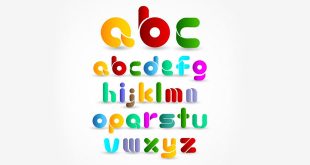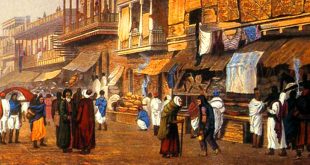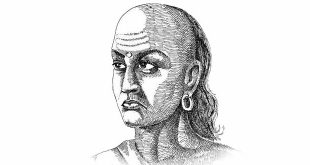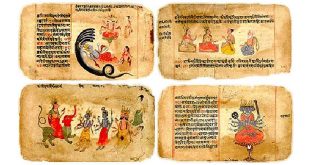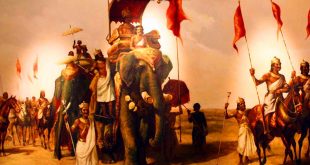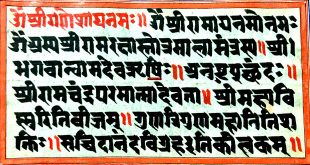If the subject is the heart of a sentence, the predicate of the sentence is what gives meaning to the heart. A sentence with just a subject can’t really make tons of sense but with the predicate attached, the sentence becomes whole. A predicate makes for one of the two …
Read More »Search Results for: Teacher
Types Of Sentences: For Students and Children
The beauty of sentences lies in clarity, the choice of words and how effectively the thought flows. If words are pearls then a great sentence can be described as a beautiful pearl necklace. Sentences convey more than meaning; they convey style. Now, when writing sentences, it must be understood that …
Read More »NCERT 7th Class (CBSE) Social Science: The Growth of Regional Cultures
Question: Name two famous works of Persian literature and their authors from Medieval India. Answer: The historian Barani, wrote the Tarikh-i-Firuz Shahi and Abdul Fazl wrote the biography of Akbar Akbarnama and Ain-i-Akbari. Question: What was the language and dialect of the book Padmavat? What was its theme? Answer: Malik …
Read More »NCERT 6th Class (CBSE) Social Science: The First Empire: The Mauryas
Question: Who was Chanakya? Answer: Chanakya (or Kauṭilya) was a wise man who served Chandragupta Maurya. Question: Who lived in the Mauryan cities? Answer: Merchants, officials and crafts persons lived in Mauryan cities. Question: Giue one point of difference between empires and kingdoms. Answer: Empires need more resources than kingdoms …
Read More »NCERT 6th Class (CBSE) Social Science: The Vedic Age
Question: Name the four Vedas. Answer: The four Vedas are: Rigveda Samaveda Yajurveda Atharvaveda Question: In what language has the Rigveda been composed? Answer: The Rigveda is in Vedic Sanskrit. Question: What were the various purposes of fighting battles as depicted by the Rigveda? Answer: Battles were fought for cattle, …
Read More »NCERT 6th Class (CBSE) Social Science: The Age of Empires and Assemblies
Question: Name a ritual used to recognize someone as a ‘raja’. Answer: ‘Ashvamedha’ was one ritual used to recognize kings. Question: Which category of people was excluded from the rituals? Answer: The ‘shudras’ were excluded from rituals. Question: Name two ‘janapadas’ in North India. Answer: Hastinapura and Atranjikhera Question: How …
Read More »NCERT 6th Class (CBSE) Social Science: What, How and When?
Question: What do you know about the location of the Sulaiman and Kirthar hills? Or Where are the Sulaiman and Kirthar hills located? Answer: The Sulaiman and Kirthar hills are located In the modem day Pakistan. Question: Name any two animals which the people of the Sulaiman and Kirthar hills …
Read More »NCERT 6th Class (CBSE) Science: Garbage In, Garbage Out
Question: Distinguish between bio-degradable and non bio-degradable. Answer: Biodegradable waste: Waste that will decay and mix with soil. Microorganisms can convert this waste into simpler from. Peels, meat, leaves are the example. Non biodegradable wast: Waste that will not decay and mix soil. Microorganisms cannot convert this waste into simpler …
Read More »NCERT 7th Class (CBSE) Social Science: Role Played by Gender
Question: What do you understand by the term gender? Answer: The way each society perceives what a ‘man’ is and what a ‘woman’ is, and what their different roles and responsibilities are, is called gender. It is more than the biological difference between men and women. Question: What is a stereotyping? Give …
Read More »Antithesis Examples: Antithesis for Students and Children
“You agree to disagree to the solution, which Jack gave you the previous day?” Well, you can see the way the statement has an opposite opinions placed in one line. This is called antithesis – a figure of speech which contrasts ideas, words and concepts in one sentence. However, contrasting …
Read More » Class Notes NCERT Solutions for CBSE Students
Class Notes NCERT Solutions for CBSE Students

